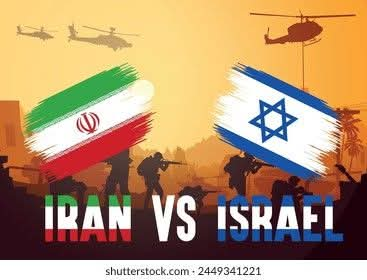U.S. President Donald Trump has announced a ceasefire agreement between Iran and Israel after nearly two weeks of escalating military conflict that has drawn international concern. www.irangov.irThe announcement, made on Sunday night via his Truth Social platform, declared what he called a “complete and total ceasefire” between the two regional rivals.
According to Trump, the truce would be implemented in two stages. Iran was expected to suspend its military operations at midnight local time, while Israel would follow with a similar cessation of hostilities 12 hours later. Trump expressed optimism that the staggered process would effectively bring an end to what he referred to as the “12 Day War.”
“This deal will end the war,” Trump wrote. “Congratulations to all parties involved. Great progress has been made. The world is watching!”
He praised the leadership of both nations for their “stamina, courage, and intelligence” in reaching what he described as a significant diplomatic breakthrough.
However, Iran has not officially confirmed its commitment to the ceasefire as outlined by Trump. Shortly after the announcement, Iranian Foreign Minister Abbas Araghchi released a statement saying that Tehran had not agreed to any formal ceasefire, warning that Iranian military operations would continue unless Israel halted its airstrikes by 4 a.m. Tehran time.
“We have made our position clear: if the Zionist regime continues its aggression, we reserve the right to respond,” Araghchi said. “We have not signed any agreement and will act in accordance with our national security interests.”
Iran’s cautious tone has cast doubt on the viability of the proposed truce, particularly as reports emerged of continued missile exchanges even after the initial deadline passed. Analysts say the conflicting signals highlight deep mistrust between the two sides and question the sustainability of any temporary halt in fighting.
The conflict, which erupted nearly two weeks ago, has involved drone attacks, airstrikes, and cross-border missile fire, raising fears of a broader regional war. International actors, including Qatar and several European countries, are said to have played behind-the-scenes roles in pushing for de-escalation.
As of Monday morning, neither the Israeli government nor the Iranian military had issued official confirmation of a mutual ceasefire. Meanwhile, diplomatic sources say efforts are ongoing to solidify the arrangement and prevent a relapse into violence.
Whether this ceasefire will hold—or if it’s simply a pause in a longer cycle of conflict—remains to be seen.


